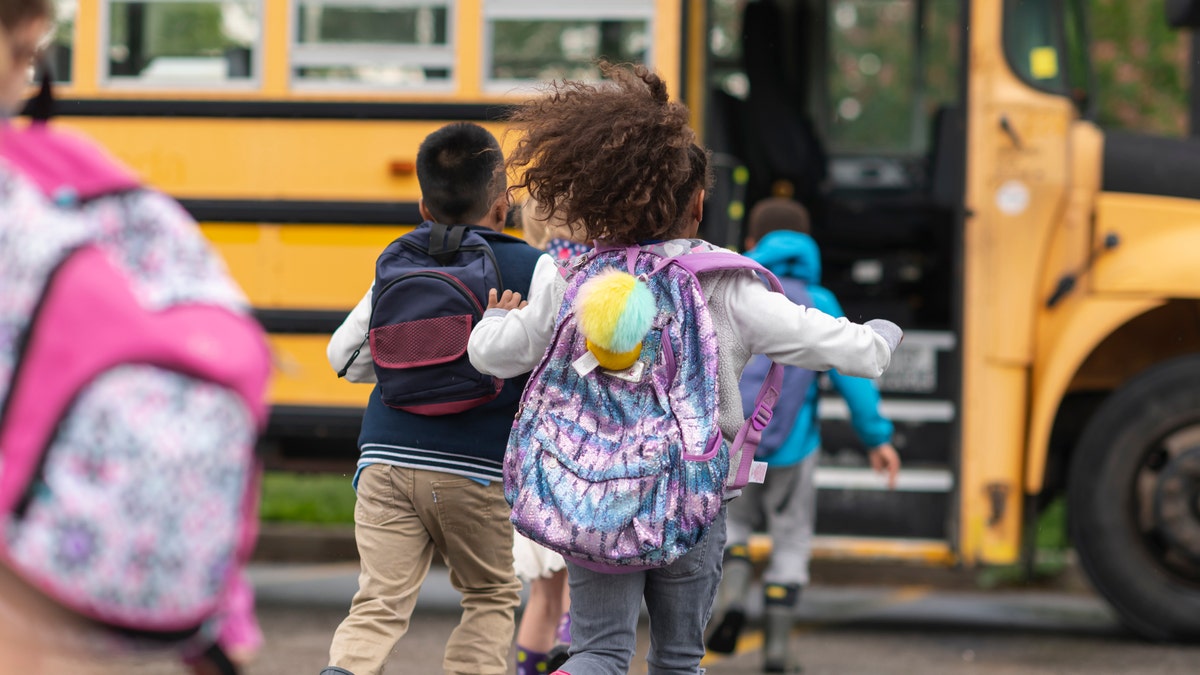Fox News Flash top headlines for July 31
Fox News Flash top headlines are here. Check out what's clicking on Foxnews.com.
Children under five years of age may harbor up to 100 times as much of the coronavirus in their noses and throats as infected adults and older children, according to a study out of Chicago.
“Our analyses suggest children younger than 5 years with mild to moderate COVID-19 have high amounts of SARS-CoV-2 viral RNA in their nasopharynx compared with older children and adults," the researchers stated in the study published in JAMA Pediatrics on Thursday.
RECOVERED CORONAVIRUS PATIENT REGAINS SENSE OF SMELL - BUT ONLY FOR FOUL ODORS
"Young children can potentially be important drivers of SARS-CoV-2 spread in the general population, as has been demonstrated with respiratory syncytial virus, where children with high viral loads are more likely to transmit," they wrote.
The authors stated in the report that although their findings did not prove the children infected with COVID-19 were contagious, other pediatric studies found a correlation between the presence of higher nucleic acid levels with an ability to cultivate the infectious virus.

The findings come ahead of the start of the new school year. (iStock)
The study was conducted between March 23 and April 27 and led by Taylor Heald-Sargent of the Ann & Robert H. Lurie Children's Hospital in Chicago. One hundred forty-five patients were separated into three groups according to their ages. These groups included: 48 adults, aged 18 to 65, 51 children aged 5 to 17 years, and 46 children under 5 years old.
The team of investigators carried out nasal swab tests on patients who showed an onset of mild to moderate symptoms of COVID-19 within one week. By the end, the researchers found that "young children have equivalent or more viral nucleic acid in their upper respiratory tract compared with older children and adults," the study authors wrote.
The authors also stated in their report the differences of the material found in the tests revealed “a 10-fold to 100-fold greater amount of SARS-CoV-2 in the upper respiratory tract of young children.”
HOMEMADE CORONAVIRUS FACE MASKS SHOULD BE TWO OR THREE LAYERS TO STOP SPREAD OF VIRUS, STUDY FINDS
The findings negate previous beliefs that children did not play a major role in transmitting the coronavirus, they stated, noting that “school closures early in pandemic responses thwarted larger-scale investigations of schools as a source of community transmission.”
The findings reveal the importance of understanding transmission potential in children -- especially as schools reopen.
"Behavioral habits of young children and close quarters in school and daycare settings raise concern for SARS-CoV-2 amplification in this population as public health restrictions are eased," they wrote. “In addition to public health implications, this population will be important for targeting immunization efforts as SARS-CoV-2 vaccines become available”.









































